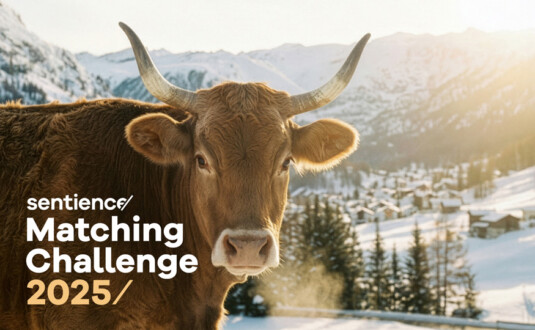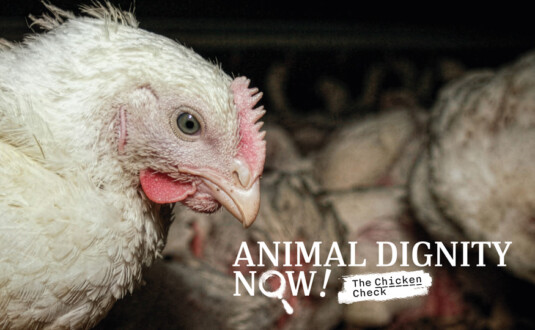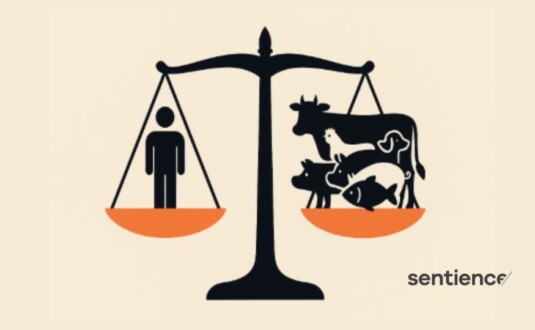Logbook : the life of an intensively farmed chicken
A broiler chicken’s weight increases 33 times over its short life. In Switzerland, nearly 80 million broiler chickens are slaughtered each year, 92% of which are raised in intensive aviculture. Their suffering is pre-programmed, encoded in their genes. This is their story.
The short and tragic life of an intensively farmed chicken
Day 1: Weighing barely 50 grams, I have just hatched in an incubator. We are all packed tightly together. Around us, small lights are flashing: heat, humidity, and artificial lighting.
Day 6: 360 grams. For three days now, they have been forcing something down one of my fellow chickens’ throat*, but it has not helped. A few minutes ago, he stopped breathing on the floor, and the human took him away. I never saw him again. Meanwhile, they keep feeding me, and feeding me, and feeding me.
Day 14: 840 grams. The feeding continues. My legs are getting heavy, my heart is pounding faster in my chest, and my vision is becoming blurry.
Day 21: 1.3 kilograms. I can see some light coming from elsewhere. It burns my eyes, already dried out by the dusty floor. A few adventurous ones have decided to go out, but I did not have the strength to follow. My legs are so heavy; I can barely stand up anymore.
Day 33: 2 kilograms. Around me, no one is moving anymore. Our legs are burned**, our bones are broken, and our hearts are exhausted. A bright light shines on us. We’re all lying there on the floor, deformed legs, dried-out eyes, and burned chests. They pick us up and stuff us into crates. I do not know where they are taking me.
A broiler chicken’s weight increases 33 times over its short life — a true «Frankenchicken». It does not peck, it hardly walks, and it certainly does not fly.
In Switzerland, nearly 80 million broiler chickens are slaughtered each year, 92% of which are raised in such conditions. Their suffering is pre-programmed, encoded in their genes. With a market share nearing 80%, Coop and Migros contribute significantly to this trend, but they also have the power to reverse it.
Another path is possible: adopting slower-growing chicken breeds
Sentience is calling on Coop and Migros to completely stop using fast-growing hybrid broiler chickens by the end of 2026 and replace them with more robust, slower-growing breeds that meet the requirements of the European Chicken Commitment.
Slower-growing chicken breeds show better welfare outcomes. Overall, they are healthier: fewer premature deaths, fewer musculoskeletal disorders, fewer bone deformities, and fewer cases of contact dermatitis or hook burns. These chickens also have lower stress levels. Unlike Frankenchickens that avoid humans, these birds are curious to approach them.
Currently in Switzerland, only 8% of chickens come from slower-growing breeds. Together, let’s turn the tide. Show the orange retail giants that you care about the welfare of chickens by signing our petition!
*Before day 6, the most vulnerable chickens are given antibiotics to minimize losses for farmers. Yet, 2 to 4% of chickens still die before they are slaughtered. This practice is primarily aimed at protecting profit margins.
**Frankenchickens suffer from hock burns on their legs and under their feet. These burns result when ammonia from the waste of other birds corrodes the skin, creating painful brown ulcers. This condition not only causes discomfort but can also lead to mobility problems and a heightened risk of bacterial infections.









